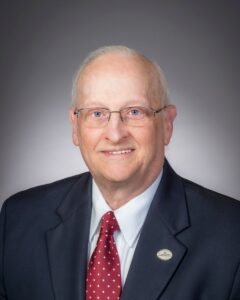 Today we’d like to introduce you to John Graham.
Today we’d like to introduce you to John Graham.
Hi John, please kick things off for us with an introduction to yourself and your story.
I am both a physician and a priest, and, for the past twelve years, I have served as President and CEO of the Institute for Spirituality and Health at the Texas Medical Center, in Houston. I was born and raised in Shreveport Louisiana, attended Tulane Medical School, and became a board-certified plastic and reconstructive surgeon. In 1977, I was the first surgeon to use microsurgery and the operating microscope to replant the totally amputated arm of a 4-year old boy.
I loved my work as a physician but also had a call on my life. I prayed every morning for fifteen years, “Lord, is this the day you will call me full-time into your work?” Finally, I left the practice of medicine, attended the Seminary of the Southwest in Austin, TX, and became an ordained Episcopal priest. I served principally on the staff at St. Martin’s Episcopal Church, in Houston. I retired from active ministry in 2009, and the following year was asked to become President and CEO of the Institute for Spirituality and Health (ISH). I accepted with joy the opportunity to serve in a place that would bring together both aspects of my life as a physician and as a priest. It has been a rewarding experience. We have grown from two paid employees to eight paid employees and two very active volunteers. We accomplish a lot.
The Institute for Spirituality and Health was founded in 1955 as one of the first Institutes in the Texas Medical Center. This means our Institue is a 66-year-old non-profit organization. Originally, our board of trustees wanted our Institute to bring spirituality back into medical care. We did that by training the first chaplains for the Texas Medical Center. Ten years later the major hospitals took over this role and created their own chaplain departments. We moved into bioethics and had a nationally recognized bioethics department. Ten years later that role was taken over by Baylor College of Medicine. This means every ten years our Institute has had to reinvent itself to remain relevant in a rapidly changing medical environment.
Our mission is to increase awareness of the role spirituality plays in health and healing. This is important if healthcare is to address the whole person – body, mind, and spirit. We fulfill our mission with conferences, lectures, research, and service projects in our community. We have three annual conferences — a Nursing Conference, a Psychotherapy and Faith Conference, and for the past nine years have been co-sponsors for the Conference on Medicine and Religion, along with eight national institutions including Harvard, Yale, Notre Dame, Loma Linda, Duke, U of Chicago, and the Ohio State University.
In 2017, a young woman, Shannon McLain Sims, came to my office and said she wanted to train medical students in mind-body skills to help them manage their stress. She said this would be a research project for her Ph.D. dissertation at Saybrook University. I had never heard of Saybrook but was curious. As I watched Shannon present an eight-week course in mind-body medicine, I became fascinated and enrolled in a Master’s program at Saybrook. I graduated with an MSc degree in 2019 and have continued my studies towards a Ph.D. in Mind-Body Medicine with a specialization in Psychophysiology. I will begin my own research project for my dissertation in 2022.
On August 17, 2017, Hurricane Harvey struck Houston devastating countless lives by the massive flooding. I wanted our Institute to do something to help people and brought Dr. James Gordon and his faculty from the Center for Mind-Body Medicine in Washington, D.C. to Houston. We were able to train 140 volunteers in mind-body skills that help manage stress. Those we trained then went into the Houston region and trained over 20,000 people in these skills. When Tropical Storm Ilmeda flooded our region, this same team reached out again sharing these skills with thousands.
Then, came the COVID-19 pandemic crisis in 2020 and we couldn’t meet face-to-face any longer. As we began working from home over the internet we realized we did not have to meet at ISH to reach people. This inspired us to create twelve online support groups — for healthcare professionals, teachers, veterans, and the bereaved who had lost loved ones. Many of these support groups were oversubscribed and we had to form new groups. People began to join our online groups from across the nation and around the world. The pandemic taught us that our Institute could touch lives anywhere in the world through the internet.
At our Institute for Spirituality and Health, we continue to reinvent ourselves to meet the diverse needs of people. Our mission is to help people recall the spiritual dimension of their lives can be a source of strength. It has been rewarding to discover that people respect and appreciate that we integrate the spiritual dimension of life in all our presentations. After all, throughout human history and in every culture, spirituality has been a major aspect of health and healing. For 66 years the Institute for Spirituality and Health has been reminding the health profession and all people of the partnership between spirituality and life-long health.
Can you talk to us a bit about the challenges and lessons you’ve learned along the way. Looking back would you say it’s been easy or smooth in retrospect?
The greatest challenge has been in the middle of the rapidly expanding Texas Medical Center with five major hospitals, three medical schools, and four nursing schools. Every day modern miracles are being performed — hearts are transplanted and cancers cured. In the midst of technological feats never imagined, our institute can easily be seen as out of touch with current medicine and healthcare practices. More importantly, the Newtonian era has treated the body as a machine that can break down and be “fixed” with pharmaceutical medications or surgery. For almost a hundred years, the value of the spiritual dimensions of faith and belief has been dismissed.
However, recently many evidence-based articles have appeared in the medical literature showing a positive correlation between a person’s spirituality and their health. Today, mind-body medicine studies have revealed the importance of treating the whole person — body, mind, and spirit. Physicians are beginning to recognize the importance of preventive medicine and recommend lifestyle behavior changes for their patients. And, among the lifestyle changes are incorporating spiritual practices in our daily lives, such as meditation, mindfulness, yoga, tai chi, prayer, and contemplation. These changes have led to the interaction of many spiritual practices in patient care.
Contact Info:
- Email: jgraham@ish-tmc.org
- Website: https://www.spiritualityandhealth.org/





















